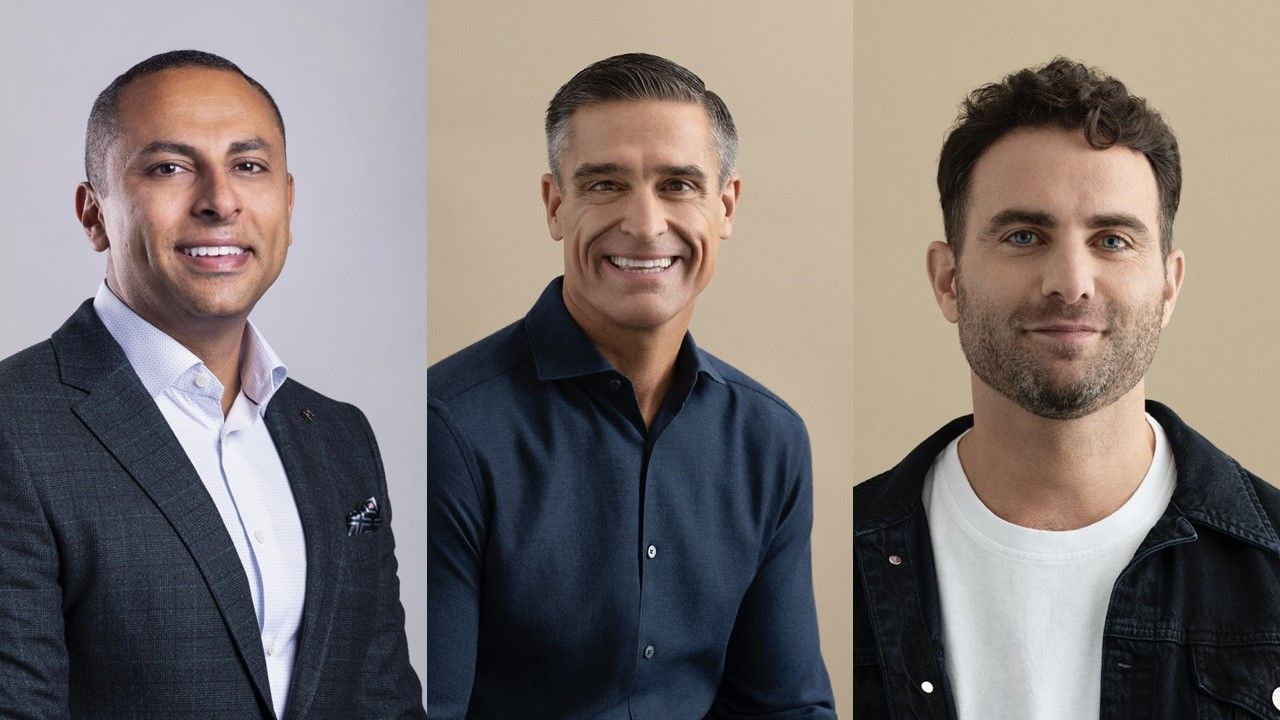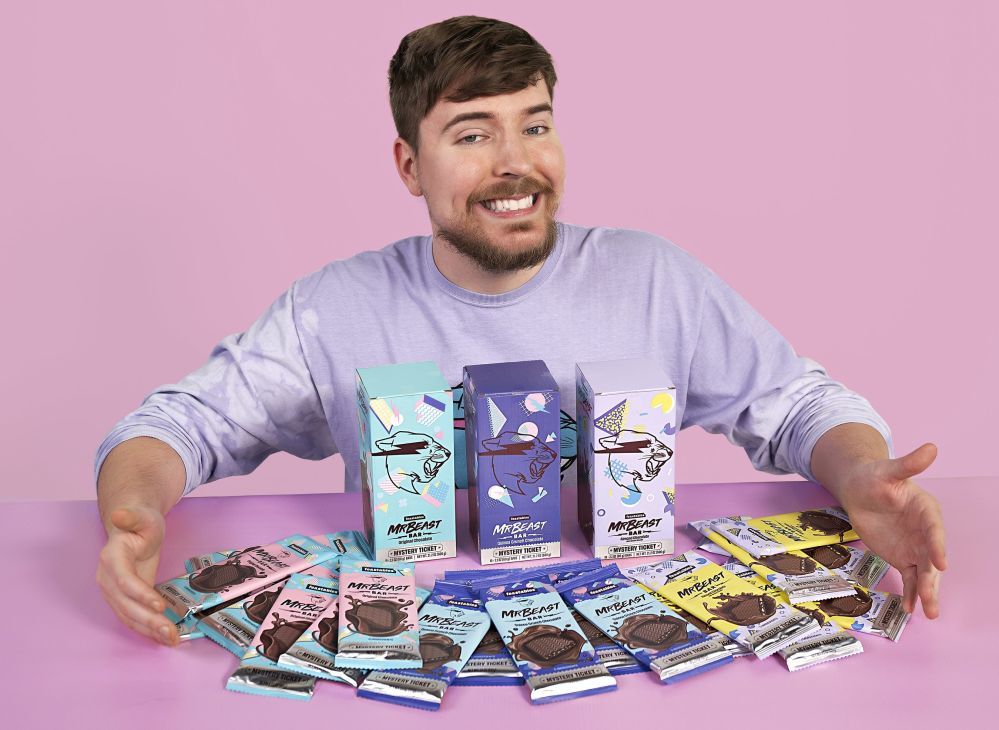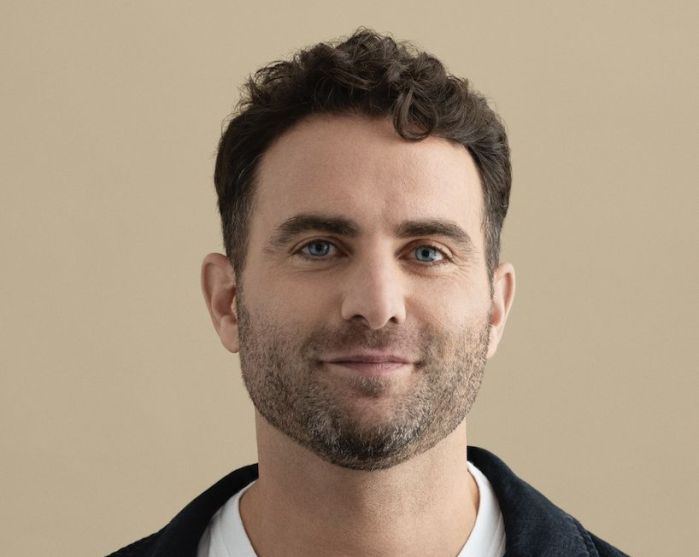- Humble Growth—a New York based growth equity investment firm launched by three CPG veterans—has closed a $312 million fund to invest in ‘disruptive’ consumer brands.
- Led by Orgain founder Andrew Abraham, RXBAR founder Peter Rahal, and CPG lawyer Nick Giannuzzi, Humble Growth’s investors include Nestlé Health Science, Verlinvest, Body Armor cofounder Mike Repole, Stonyfield Farm founder Gary Hirshberg, IT Cosmetics founder Paulo Lima, and Ainsworth Pet Nutrition founder Sean Lang.
- Humble Growth will write checks of around $10-40 million for companies with sales of at least $20 million looking for growth capital in food, beverage, health, beauty, vitamins, supplements, and apparel.
Peter Rahal: ‘A true venture strategy that you see in tech doesn’t really work in consumer goods’
Managing partner Peter Rahal tells AgFunderNews: “So $300 million plus for a first-time fund is a tremendous amount. You don’t really see that, and we’re writing basically one check a quarter. But in consumer goods, seed investing doesn’t make much sense as there is basically no data and not enough billion-dollar outcomes to offset all the losses.
“So a true venture strategy that you see in tech doesn’t really work in consumer goods. But by the time the company is maybe three years [old] and into a more mature lifecycle, you can see if it has product market fit and you can really help a company like that get into an attractive position.”

‘You’re not going to really understand what it takes unless you’ve been through it’
It’s a cliché, but Humble Growth’s founders have been there, done that, and bought the tee shirt, which is considerably more valuable to entrepreneurs they work with than a check that anyone could write, claims Rahal.
“So Andrew’s Orgain business [sold to Nestlé in 2022] was an $800 million revenue business, and I got RXBAR [sold to Kellogg in 2017 for $600 million] to a $250 million business, and then Nick has helped engineer some of the biggest deals in this space,” says Rahal, who has been investing in companies for several years via his family office Litani Ventures.
“And through our experience, we saw a clear pattern with entrepreneurs and management teams going to growth equity and being frustrated and dissatisfied.
“When I personally went through the experience of trying to raise money, which I ultimately never did, the reason was a misalignment of values… in the first meeting they assumed I couldn’t be the CEO so it was quite patronizing. And I remember thinking, you don’t even know me, you have never done this, what the f**k do you know?
“Variations of this are happening to a lot of entrepreneurs, so we clearly saw an opportunity for an operator/founder-led fund. You want people with empathy as you’re not going to really understand what it takes unless you’ve been through it.”
Humility paired with self-belief
There is no one-size-fits-all blueprint of a perfect founder, says Rahal, but the entrepreneurs that combine self-belief, and even aggression, with humility and a willingness to learn and adapt are generally the most successful.
“Humility, which ties in with the name of our fund, is a misunderstood trait. People think a humble person is weak or quiet or passive, but true humility can be very action-oriented, very confident without being proud or arrogant. If you’re going to learn more, you’re going to be coached, if you’re going to care about getting it right versus being right, you need humility, so that’s really what we look for.”
As for consumer brands that Rahal et al are interested in, he says, “There’s always demand for what I call valuable novelty; it can’t just be new, it has to bring value to life. Ideally you also want something that’s high [purchase] frequency and [that can be consumed] multi-occasion. But to me it’s all about people, I just haven’t seen a good outcome that doesn’t also correlate with a great CEO and great leadership.”
While Rahal says he finds many developments in alternative proteins and cellular agriculture “super-interesting,” Humble Growth is not focusing on this area. “I personally don’t have the technical experience to underwrite it, but I’m rooting for companies in this space.”
He adds: “Andrew, Nick and I have sat on both sides of the table, as entrepreneurs and as investors or the ultimate acquirer, and we want everyone to win.”
“I would have killed to have had a Humble Growth available to support Stonyfield and help bring not only critical funding but also seasoned guidance during our growth years.” Gary Hirshberg, cofounder, Stonyfield Farm
Exits in consumer goods
It’s fair to say that multinational consumer goods companies don’t have a great track record when it comes to acquiring fast-growing CPG brands, says Rahal (think Campbell Soup and Bolthouse Farms; Coca-Cola with Zico and Honest Tea; Hershey with KRAVE; and Dean Foods with Uncle Matt’s Organic—brands that ultimately performed poorly under the corporate umbrella and were sold back to their founders in one form or another).
“It’s very difficult for companies with $50 million in revenue to sell to a big strategic now. They want something that is really going to move the top line and the bottom line, so that would be brands maybe north of $200 million, so we’re looking for brands that we can get clearly north of $100 million and on a path to $200 million.”

MrBeast’s playbook
In today’s fragmented media environment, companies that are connected to a media or social media channel, or are associated with a celebrity with an established social media presence that can cut through the noise, are particularly attractive, he says.
“I call them media-backed brands, or brands with their own media assets. So take for example, MrBeast, the most popular YouTube channel [created by Jimmy Donaldson in 2012]. That’s a media asset you can build brands around [for example, Donaldson has recently used his platform to build the Feastables snack brand and the MrBeastBurger ghost kitchen business].
“So that media asset is very valuable to that brand and it makes sense because it means the cost of acquiring customers is much, much lower.”
“A fund that is truly built by transformative founders coupled with an incredibly impressive lineup of limited partners that are fully immersed in the industry makes us at Nestlé Health Science incredibly excited to be a part of the journey.” Don Kerrigan, CEO, Nestlé Health Science US
Valuations in 2023: ‘The price of companies has really come down’
Looking back over the past few years of food investing, he says, “I think the glory days were kind of 2010 to 2020. And then in 2021, anything that was disruptive or exciting in foodtech in particular got crazy valuations. But the price of companies has really come down to reflect the competitive landscape.”
So could the playbook for RXBAR—which Rahal and Jared Smith famously started for $10,000 and sold for $600 million five years later—work for other brands today?
“We rode a trend, the Paleo, CrossFit trend, and then transitioned to the mass market by reducing the price and improving product,” says Rahal. “I think that could still happen today, but it comes back to my point of the capital efficiency of acquiring customers. When we started it was at the beginning of influencer marketing and Instagram, but it’s much more expensive to acquire customers today.”
So what is his advice to CPG startups struggling to get out of the starting blocks?
According to Rahal. “AT RXBAR, being capital-constrained forced us to try very creative marketing strategies that were extremely efficient. It’s painful, as you have to prioritize profitability earlier, but it can be a good thing because a lot of these companies aren’t tech companies. They are businesses where their unit economics should work early.”





